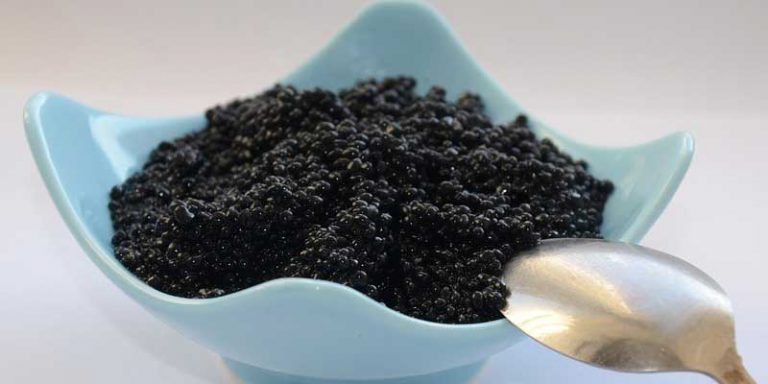Caviar is a delicacy that’s usually served with gourmet foods. It’s usually served at fine restaurants, but it’s also found in grocery stores. If you bought some and made a delicious dish with it, you’ll want to save this expensive delicacy for later. Would freezing caviar be an option for storage?
So, can you freeze caviar? Yes, you can freeze caviar. It’s best to freeze them if the container has not been opened. Once it’s opened, the texture of the caviar will change once it’s frozen. However, you’ll still be able to freeze them, but you’ll need to properly store them.
Does Caviar Freeze Well?
Due to its delicate texture, caviar does not freeze well. It’s recommended to avoid freezing them as much as possible.
The reason is that when the caviar thaws, it will become soft, mushy, and clump together. This is something that you will not enjoy since it’s very different from when it was fresh.
How To Freeze Caviar
When it comes to caviar, with its delicate texture, I recommend that you do not freeze it. Instead, you can store them in the fridge, which will give you a few days to use them before it starts to go bad.
However, if you have no choice but to freeze your caviar, you can do so, but you’ll need to be very careful about it. Below are the steps with details to freezing caviar:
Step 1: Store In Airtight Container
With an airtight container, make sure to use those that are designed for freezer usage.
Also, it’s best to use several small containers than one large container to store caviar. This will allow you to remove the amount you want without worrying about any leftovers. Once it’s thawed, you cannot refreeze caviar.
Step 2: Portion the Caviar
Use a spoon and scoop portions of caviar into the containers. Then add a layer of cling film on top of the container. This helps give the caviar extra protection from the freezing temperature.
Step 3: Seal The Container
Before sealing the container, you will want to make sure there is no damage to the seals. Just a small leak can cause air or moisture to get into the container and destroy the caviar.
If there are no damages, secure the lid to the container tightly. Make sure you don’t tighten it too tight that it will damage the cling film.
Step 4: Label and Freeze
With a marker, write down the date of freezing on the airtight container. Then place it into the freezer for storage.
To save room in the freezer, you can stack the container on top of each other.
How Long Can You Freeze Caviar?
Caviar can be frozen for up to one year if the container has not been opened. Otherwise, it will last no longer than a couple of months. The flavor and texture of it will change if it’s kept too long in the freezer.
How Do You Defrost Caviar?
When it comes to caviar, you will need to be very careful when thawing them. Letting the caviar defrost too quickly, and you’ll end up with them being mushy.
The best method is to take them out of the freezer and place them into the fridge. Make sure to not open the container while it’s thawing. Let it sit in the fridge and thaw overnight for the best result.
Avoid thawing them at room temperature or using warm water. Doing so will cause them to thaw too quickly, and you’ll end up spoiling the caviar even further.
Can You Refreeze Caviar?
No, you cannot refreeze caviar. Actually, you should avoid freezing caviar at all. This delicate delicacy doesn’t freeze well. As it freezes, its texture will change considerably.
If you try to refreeze the caviar, once it’s thawed, it will become soft and mushy, and will not taste very good. More than likely, you’ll end up throwing it away.
How to Tell if Frozen Caviar Has Gone Bad
When freezing caviar, it still can go bad. It will usually be due to keeping them frozen for a prolonged amount of time or letting them thaw for too long.
When the caviar has gone bad, it will have a horrible smell to it. Normal fresh caviar will have a clean smell. The smell will be enough to make you turn away.
Another thing to look for is the texture of it. When caviar is spoiled, it will be soft and not round. Good caviar is plump and round.
Other Questions about Caviar
Are caviar and roe the same?
All fish eggs are called roe, but not all roe is caviar. The term caviar only applies to the cured fish roe that comes from the sturgeon fish.

